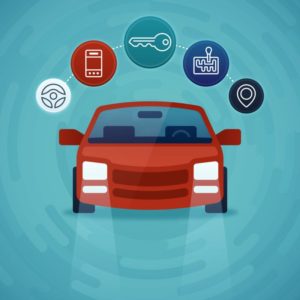Ford has issued a new software update for its 2016 car models that enables Apple CarPlay and Android Auto for the vehicles. But what’s more notable about the update, as Mashable’s Brett Williams points out, is that it marks the first time Ford has upgraded software over-the-air, using wifi.
But what’s more notable about the update, as Mashable’s Brett Williams points out, is that it marks the first time Ford has upgraded software over-the-air, using wifi.
It’s another sign of the growing digitization of car technology and the emergence of a true smart car. And it arrived in the same week that Gemalto announced that the newest line of Mercedes Benz E-Class cars will use its Trusted Services Hub for digital key provisioning. That means drivers will be able to download virtual car keys and use their smartphones to gain access to their cars, just by holding the devices against their door handles. What’s more, the technology will continue to function up to 24 hours after a smartphone runs out of power.
Such digitization of automotive technology is likely to continue and to ramp up, judging by other developments concerning IT and electronics giants. A global smart car consortium recently elected a Samsung executive as its new leader, with the company having recently acquired a car components maker; and Microsoft recently announced that it will license its own connected car tech to car makers, with Toyota being the first in line.
Meanwhile, car and parts makers are looking into perhaps even more cutting-edge technologies for their smart cars. Jaguar Land Rover, for example, has been exploring a system that would unlock car doors based on facial recognition, while a new system from Gentex uses Delta ID technology to let cars identify drivers through an iris scanner embedded in the rear-view mirror.
It appears that the smart car race is shifting gears, and will only gain momentum as companies across the automotive and tech and IT sectors continue to pick up speed.

Follow Us